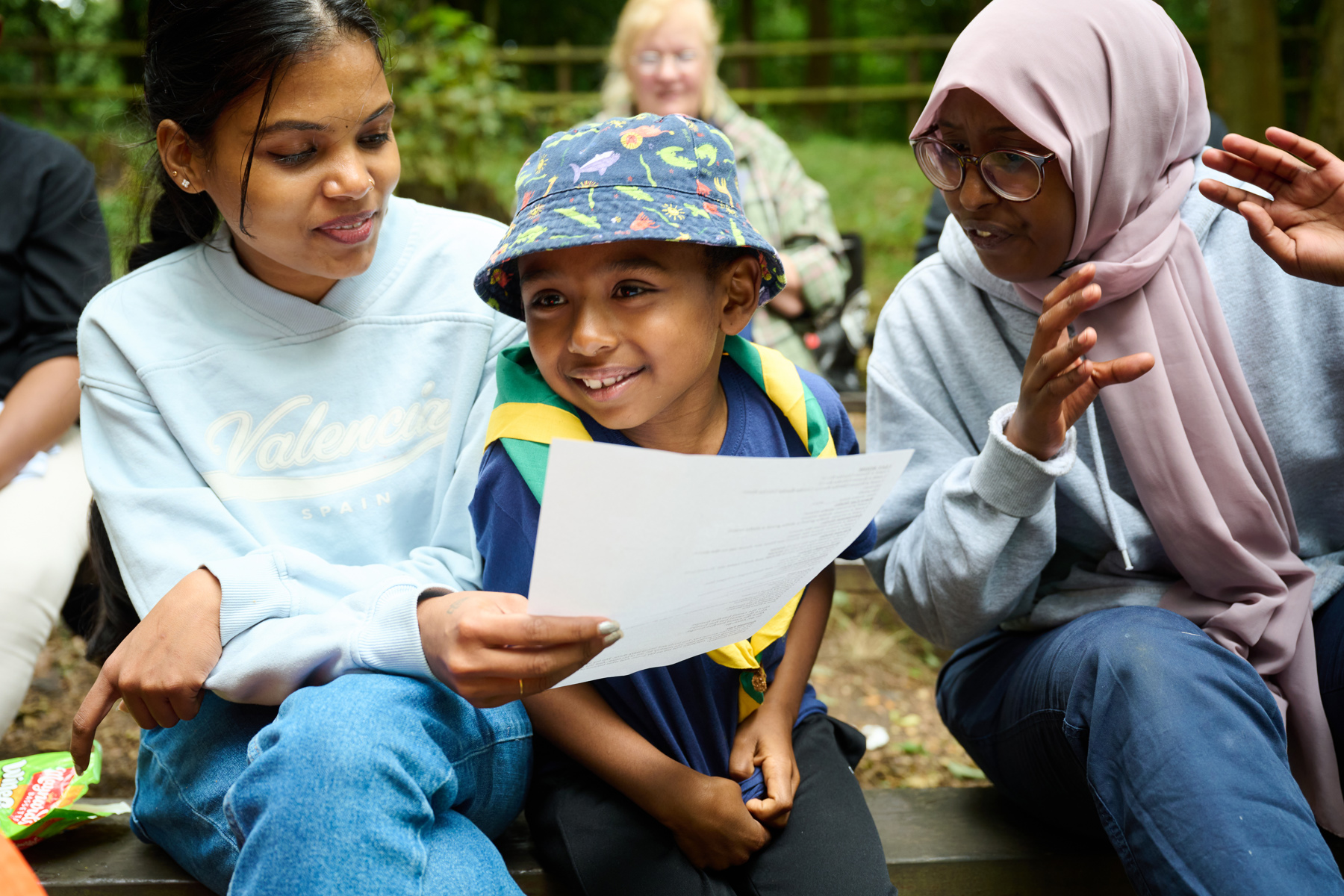Agreeing adjustments
Learn more about working in partnership with members, parents and carers
Quick links
There's a lot of flexibility in our Scouts programme, including in our badges and awards. This makes sure all young people can enjoy the adventure in a way that’s challenging to them.
Considering the individual's needs
Reasonable adjustments should respond to the needs of the individual and remove or reduce any barriers or support access, by:
-
Considering physical spaces, such as the meeting place and activity locations
-
Considering the way things are done, such as having flexible age ranges or adapting the programme and badges
-
Offering extra aids or equipment, such as adapting equipment and communication methods
Working in partnership with parents, carers and the young person, these considerations should be explored in detail. We have some tips to help you to start these conversations. Making reasonable adjustments is an ongoing responsibility. The adjustments should be regularly reviewed to make sure that they’re still removing barriers to participation, still being implemented effectively and still responding to the individual’s needs. Any adjustments you make must be in line with our safety guidance and our safeguarding policy.
Financial help for making adjustments
There are grants available to support young people and adults to take part in Scouts. These grants can cover things, such as costs of equipment, learning or service. Remember, you don’t always need to purchase equipment, you may be able to borrow equipment from a nearby Scout group or rent out some equipment, especially if it is only needed for a short period of time.

Working in partnership with members, and parents and carers
As volunteers, developing positive relationships and working in partnership with members, and parents and carers is key to supporting the successful inclusion of members with additional needs in Scouts.
Engaging with and talking to parents and carers when a young person joins Scouts, or moves sections, will help them to better understand what we do in Scouts. You can use our tips for starting these conversations, the individual support plan and the supporting template to plan and support these conversations. The young person’s needs should always be centered throughout these conversations and prioritised above any communication challenges.
Having open conversations with the young person and their parents or carers is key. Building a positive relationship sets the stage for teamwork – because deciding on reasonable adjustments is a team effort. You’ll need support and guidance from the young person and their parents or carers when deciding what reasonable adjustments need to be made. Working together will help you to make sure the young person gets the best out of their experience at Scouts. Where a young person's supported to access Scouts by a professional carer (for example, provided by the local authority, or another charity), then the Group should work with the parent or carer to plan and agree how this can work in practice.
Making reasonable adjustments
Making reasonable adjustments may incorporate some physical changes to a meeting place, such as buying a moveable ramp where steps are currently a barrier to a wheelchair user accessing the space.
Any physical changes to buildings need to be considered by the building owner, which may not be the Scout group. Where the Scout group owns the building, they should consider the effectiveness and cost of potential changes, alongside their financial position.
All young people in Scouts should have the opportunity to enjoy adventurous and outdoor activities equally. The guiding principle throughout the programme is that young people are being challenged, while having fun. This makes it an enjoyable and rewarding experience for any young person, whatever their ability.
Young people's individual needs should be taken into account in the planning of activities, including the chosen location or venue, the activity and level of support needed.
Each young person who participates in our badges, activities and awards should face a similar level of challenge.
Badge or award requirements can be adapted according to each young person's abilities. This helps make sure that everyone in Scouts can access the badge or award of their choice
The Promise is a simple way to help young people and adults celebrate their shared Scout values. The first time someone makes their Promise it's at a special ceremony called an Investiture or a Promise ceremony. There’s no single way to run an Investiture and everybody should be able to make their Promise in a way that is accessible, comfortable and meaningful for them.
Visit our page on Making your Scout Promise for more information on reasonable adjustments when making the Promise and when running Investiture or Promise ceremonies.
All individuals are legally recognised as adults from their 18th birthday onwards.
Regardless of any additional need or disability, upon reaching their 18th birthday, a youth member is legally recognised as an adult. They can't remain in the Squirrel, Beaver, Cub or Scout sections, or in an Explorer Unit. All members aged 18 and over should either become members of Scout Network or have adult volunteer roles.
This complies with The Scout Association's duty to safeguard the wellbeing of all our young people.
All adults taking part in Scouts must follow the Yellow Card.
All adults in Scouts make a commitment to support all young people to fully participate in Scouts.
This is reflective of our ethos and our core Scouts values, which are integrity, respect, care, belief and cooperation.
Where volunteers are resistant to making reasonable adjustments, it’s important to look into why this is and whether this highlights a learning or development need. This should be responded to via line management. For further information, please contact the Support Centre.